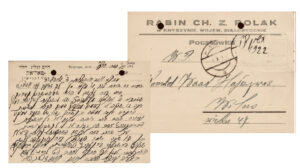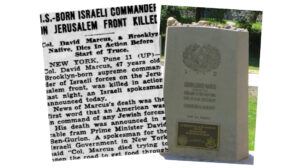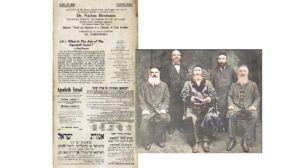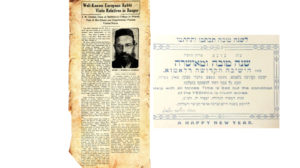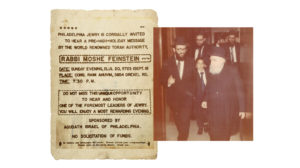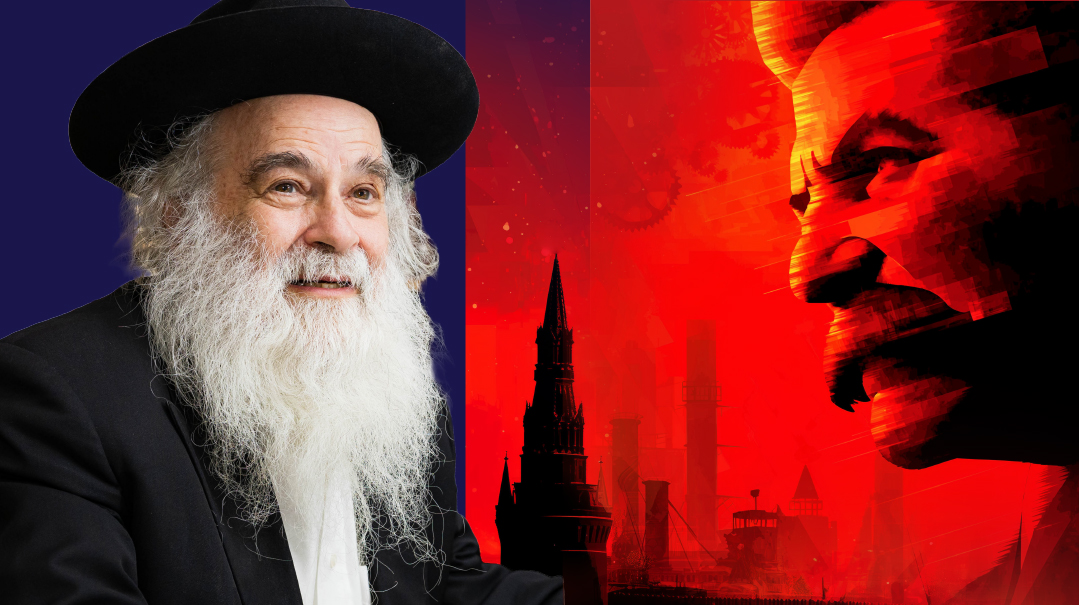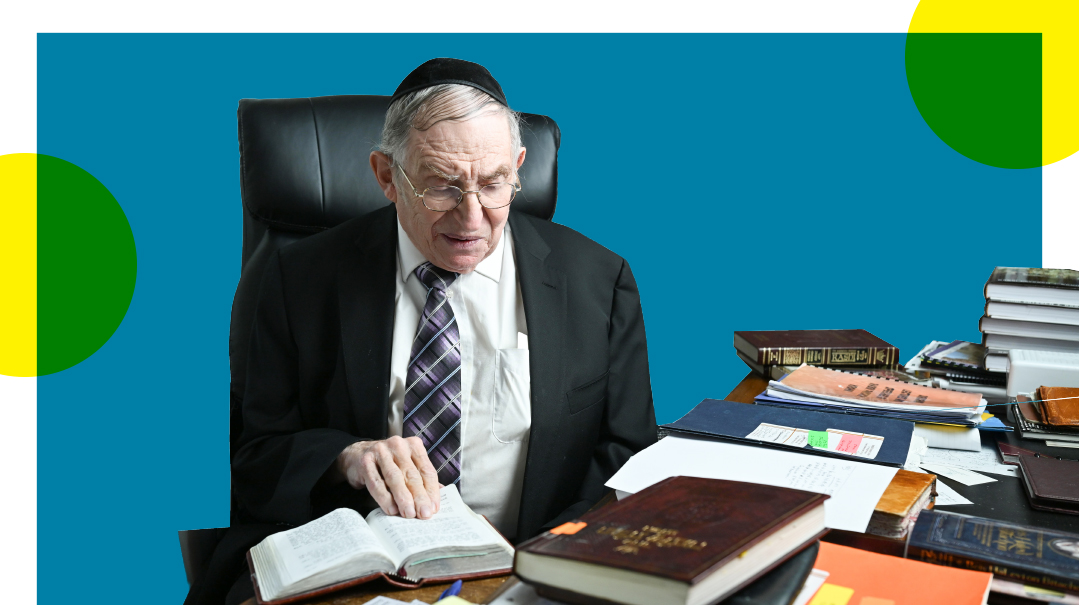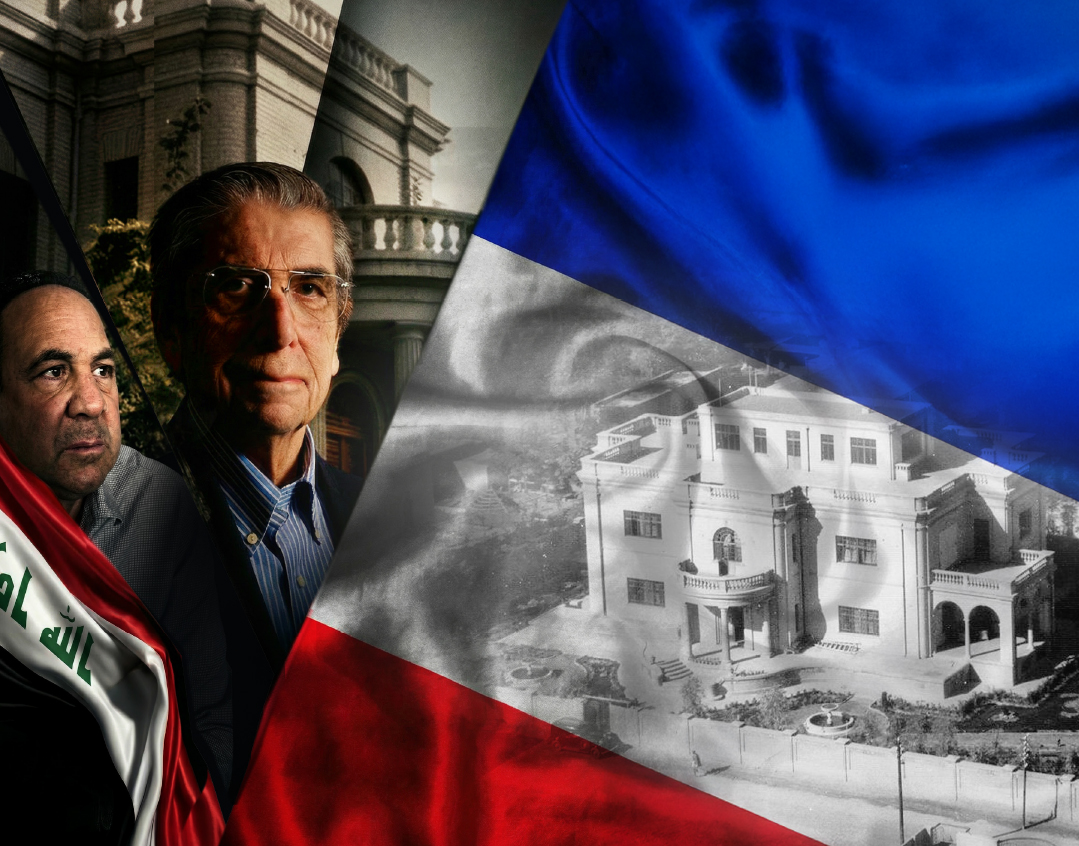Prime Ministers, Personalities, And Other Secrets Of Diplomatic History,

 Yehuda Avner — who, in one of his last acts working in an official capacity for Israel, attempted to make all the kitchens in Israel’s embassies kosher — advised every Israeli prime minister from Levi Eshkol in 1967 to Begin in 1982, and stood by their side at the nation’s most perilous moments.
Yehuda Avner — who, in one of his last acts working in an official capacity for Israel, attempted to make all the kitchens in Israel’s embassies kosher — advised every Israeli prime minister from Levi Eshkol in 1967 to Begin in 1982, and stood by their side at the nation’s most perilous moments.
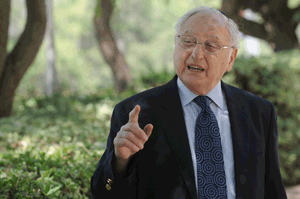
I met Ambassador Yehuda Avner for the first time in early June at a conference on Israel’s minimum security needs sponsored by the Jerusalem Center for Public Affairs. He handed me his card and invited me to drop by for a chat some time.
I was thrilled as I had been reading his fascinating pieces on great moments in Israeli diplomatic history in the Jerusalem Post for years and had even sent him a fan letter at one point. I was eagerly awaiting my mother’s copy of his new book The Prime Ministers: An Intimate Portrait of Israeli Leadership in which many of the earlier pieces are incorporated.
I told Ambassador Avner at our first encounter that I wanted to push off our meeting until I had finished the book which despite its length took far less time than I anticipated. The Prime Ministers is gripping and provides Avner’s first-person view of most major developments in Israel’s diplomatic history from 1967 through 1982. He takes us to Prime Minister Levi Eshkol’s side during the tense weeks leading up to the Six-Day War during which 10 000 graves were dug in Tel Aviv in anticipation of war dead. And later we are with Eshkol at President Lyndon Baines Johnson’s Texas ranch when he practically begs Johnson to rearm Israel in the face of the Soviet Union’s massive build-up of the defeated Arab armies.
As head of the government press office and Golda Meir’s in-house speechwriter Avner gives us an intimate look at the Yom Kippur War when Israel’s existence hung by a thread in the early days of the battle; and at the difficult negotiations to end the war as Secretary of State Henry Kissinger forced Israel to release Egypt’s encircled Third Army thereby denying Israel the fruits of victory.
Serving under Prime Minister Yitzchak Rabin Avner was at the center of the tense negotiations over an interim Sinai withdrawal agreement prior to Israel signing the Camp David treaty with Egypt. And he was present as Rabin made the harrowing decision to release large numbers of terrorists in return for Israeli hostages hijacked to Entebbe if a military rescue option could not be found.
In our first conversation he showed me the communiqué from Prime Minister Begin to President Jimmy Carter which Begin dictated to Avner as they stood on the tarmac bidding farewell to Egyptian president Anwar Sadat after Sadat’s dramatic visit to Jerusalem. Avner accompanied Begin to Camp David for the negotiations with Carter and Sadat that resulted in the Camp David accords. Later in Begin’s premiership the bombing of the Iraq’s nuclear reactor and the second Lebanon War placed Israel and the Reagan administration on a collision course.
In addition to memorable portraits of the four prime ministers under whom Ambassador Avner served readers are treated to sharply observed descriptions of the main protagonists on the other side of the bargaining table: US presidents Johnson Nixon Ford Carter and Reagan; and Kissinger and Sadat. The Prime Ministers is that rare book that actually lives up to the accolades on the back cover.
Little did I dream that the chat Ambassador Avner first proposed would develop into a six-hour conversation over two meetings at Jerusalem’s Wolfson Towers. He turned out to be every bit as good a storyteller in person as in print. Freed from the observer’s role he established for himself in the book he was able to give greater latitude to his occasionally acerbic wit; to reflect on the meaning of the events and personalities to which he was witness; and to discuss the rest of an illustrious career not yet complete.
Having interviewed hundreds of people over the years on book projects I’ve noticed that most people tend to thrust themselves to the center of the events being discussed. You managed to maintain the perspective of the proverbial “fly on the wall.” How?
“Well the government censor made it easier by cutting out entirely the chapters where I figured most prominently. In any event I never intended to write an autobiography but rather what the subtitle says: ‘an intimate portrait of Israeli leadership.’ Like most writers I want to be read and I’m acutely aware that my readers are far more interested in the major protagonists of the book — the prime ministers — than in Yehuda Avner of whom they have never heard.”
Still wasn’t it hard never to refer to your own role in the events being described?
“Not really. I spent most of my years in public service in the prime minister’s bureau where self-effacement is a major part of the job. The prime minister must feel totally comfortable with the people around him and know that they have no personal agendas.”
I found The Prime Ministers to be narrative history at its best — a compelling summary of all Israel’s major diplomatic crises from 1967 through 1982. But did you have any larger purpose in writing it?
“I consider myself to be much more of a storyteller than a historian. I did not have any conscious agenda. When I began writing, I was curious to know how far I could go — and how far the censor would let me go — with my transcriptions of crucial meetings over the years. I was the official note-taker at most of the diplomatic encounters. At some of the most sensitive ones, however, it was considered unacceptable to make a word-for-word transcription. Over the years, I trained myself to record the meetings in my mind, and immediately afterwards dictate to my secretary everything that had been said. I never threw away my original notes, and these form the core of my book.”
So your accounts of these meetings could be described as primary historical documents?
“Yes, I suppose so. Yechiel Kadishai, who headed the prime minister’s bureau under Menachem Begin, called me after reading the draft manuscript and told me, ‘That’s exactly the way it was.’ That gave me enormous confidence, because no one knew Begin better than Yechiel Kadishai. I also had the advantage of being able to debrief my good friend Sam Lewis, the US ambassador to Israel from 1977 through 1985, to check my account of the American positions.”
A Firm Believer
One thing that emerges from the early chapters in Mr. Avner’s book, on Israel’s War of Independence, is how much sacrifice went into securing a state. I tried several times to read aloud the letter his wife’s older sister, Esther Callingold, wrote to her family in England, as she was bleeding to death from wounds incurred in defending the Old City of Jerusalem. But I always found myself crying too hard. Mr. Avner says the post-Zionists scoff at the idea that Yosef Trumpeldor could really have said, “It is good to die for one’s country.”
“Esther’s letter disproves their theories,” says Mr. Avner. “She died with an absolute conviction that her sacrifice and those of many others would result in a Jewish state, and rejoiced in that belief. Esther was deeply religious. She died on leil Shabbos with the words of ‘Mizmor shir leYom HaShabbos’ on her lips.”
Mr. Avner’s father-in-law, Moshe Leib Callingold, was a Karliner chassid and had been one of the most prominent seforim publishers in Warsaw and later in London. He escorted Esther to Palestine. Despite the words of encouragement in her final letter, he never came to terms with her death.
We tend to think that Israel’s situation has never been so perilous as today. Yet reading your book, it becomes clear that Israel’s existence has hung by a thread repeatedly. Has your intimate knowledge of Israel’s history strengthened your religious faith?
“Definitely. I’m not a theologian, but I know a fair amount about Jewish history. I’m a believer in the G-d of Israel and the lessons of our history. And the central lesson is: Our enemies try to destroy us in every generation, and in the end it is they who are destroyed.
“Incidentally, I have come to understand that the Zionist founding fathers profoundly misunderstood Jewish history, and I doubt they understood much about Arab history either. They thought that political independence would allow the Jewish people to assume its place among the nations of the world, just like any other. And that has not happened. That is one of the lessons I learned from Yaakov Herzog.”
You describe Herzog as your mentor. Could you tell us a bit about this fascinating personality, the son of the first Ashkenazic Chief Rabbi Yitzchak Isaac Herzog?
“He was truly one of the most remarkable people I have ever met. On the one hand, he was a brilliant Talmudist, who was close to Rav Isser Zalman Meltzer, and was offered the position of Chief Rabbi of Great Britain. On the other hand, Israel’s first prime minister, David Ben-Gurion, described him as Israel’s tzafnat paneach. Prime Minister Eshkol thought so highly of him that he held open his offer to be his chief foreign policy advisor for a full year, while Yaakov recovered from an illness. His early diplomatic training came as personal secretary to his father during the latter’s negotiations with the Vatican, after the Second World War, for the return of Jewish children hidden in convents.
“We first became close when I was working in the foreign ministry under Golda Meir. He was then a senior official, and he took note of me not eating with everyone else, and putting on my kippah to make brachos. We used to go to lunch every Erev Shabbos, and have chicken soup and kneidlach. He profoundly influenced my world view.”
In what way?
“After his early passing, I helped put together a collection of his writings and speeches under the title A Nation that Dwells Alone. That title captures the central idea I imbibed from him: the uniqueness of Jewish history. We entered history with Yetziat Mitzrayim and Ma’amad Har Sinai as a nation and a faith simultaneously, and that duality continues to define us. In this sense we remain totally alone in our unique identity. Even today, we do not share a natural solidarity with any other nation — we belong to no pact of nations, are not full members of any economic bloc, and belong to no regional grouping at the UN. We are forever the odd state out in the family of nations.
Let’s talk about the prime ministers whom you served, both collectively and individually. You do not exactly offer a warts-and-all view of your protagonists. True, Golda Meir comes off as slightly silly, gushing about her failed marriage to journalist Orianna Fallaci, and Rabin tipples too much; but, in general, they are all absolutely committed to the public good, proud and unflinching advocates of Israel’s case, and tough under pressure. You must admit that Israel’s recent crop of prime ministers does not exactly come off well in comparison. Was the contrast intentional or simply inevitable?
Ambassador Avner does not answer, just smiles a trifle sadly.
What went wrong?
“Basically we went from a society based on collective values to one based on the pursuit of private pleasures and gain. And our prime ministers reflect that shift.”
You worked chiefly for four prime ministers from across the political spectrum. Were there perhaps more continuities in Israeli foreign policy than we generally think?
“Definitely. Perhaps the most important, which comes across strongly in the book, is their unanimous opposition to a Palestinian state. And that, in my opinion, goes for Rabin as well, even on the eve of his assassination.”
One of the things I found interesting is how much Yiddish Eshkol, Meir, and Begin injected into their speech. Only Rabin was a sabra. Did that make a big difference?
“Levi Eshkol came from a Polish chassidishe home, but kept nothing. When he became excited, however, or in moments of high stress, he would naturally revert to Yiddish. One such moment was when we received reports prior to the 1967 War that the Egyptians were moving poison gas, which they had already used in Yemen, into the Sinai. Eshkol shrieked over the phone to Abba Eban, our foreign minister at the time, who was about to enter the White House to meet with President Johnson: ‘Zug dem goy az mir haben tzu tun mit chayes. Ir hert? Chayes! (Tell the goy [President Johnson], we’re dealing with animals. You hear? Animals!)’ Ironically, it was the German company Siemens that provided us then with gas masks.
“I forgot to put in one of the most poignant Yiddish remarks made by Eshkol. Right after the Six Day War, he was photographed holding up his fingers in a Churchillian V. Asked what the V stood for, he replied, ‘Vie krich m’arois’— which might be loosely translated as, ‘How do we get out of this mess [of having conquered all the territories]?’
“You are right that Rabin did not have the same sense of himself as a Jew as the others. Being a sabra prime minister — our first — was a big thing in its day. Interestingly, even though his mother was a socialist firebrand, her father had been a very pious Jew. He was a timber merchant, and one of the few Jews allowed to live in Petrograd. He managed the forests of some relation to the Tsar. That was why they gave him a telephone. So when it rang, he knew someone important was calling. Nevertheless, he never answered the phone on Shabbos, even if it meant losing his livelihood.
“Time and again, I tried to influence Rabin to observe Jewish tradition, at least in public, but he was impatient with religious observance. Whenever I tried to convince him to keep kosher at public functions, he would dismiss it, saying, ‘Azov et zeh — leave it alone.’ I once had the unenviable task of trying to teach him to recite Kaddish in preparation for a visit to Bergen-Belsen as prime minister. I cannot say I was very successful.”
Didn’t you find it disorienting to serve under prime ministers with such different ideologies?
“Not really. You have to remember that though I came to Eretz Yisrael just prior to the War of Independence, my education was in England, where the concept of a permanent government service remains very strong. Beyond my fundamental religious convictions, I am by nature not given to stringent ideologies. Indeed, I’m frequently appalled by those who become slaves to ideologies, and can no longer think for themselves.
“Golda Meir’s blind devotion to her socialist creed is an example. She died a bitter woman when she realized that Israel had been deserted by all her old so-called friends in the Socialist International. I describe her extremely bitter confrontation with Austrian prime minister Bruno Kreisky, a completely assimilated Jew and committed socialist, over the latter’s closure of the major transit point for emigrating Russian Jews under threats of Arab terrorism.
“Even my hero Menachem Begin was susceptible to being blinded by his nationalist ideology. I still cannot imagine what pushed him to tell an American president that he envisioned giving West Bank Arabs a vote in Israeli elections as part of his vision of a Greater Israel.”
You liked Levi Eshkol very much?
“Yes, he was one of the most amiable of men to work for. But I started with him on the wrong foot. I was assigned the task of preparing an address he was to make for a major fundraising dinner in London. I knew I was in deep trouble when he threw aside the opening pages of my grand rhetoric and said, ‘Stark narishkeiten — utter nonsense! Can’t you write plain English?’
“There was no time for him to check the remaining pages, so he carried them to the podium, unaware that these too were filled with grandiloquence. So there he stood striving mightily to fit his Yiddish diction to my flowery English, and in the middle of these efforts, he leaned across the podium towards me, and hissed in Hebrew, ‘What is all this supposed to mean?’ Then he turned to his audience and informed them, ‘What I just said is not true. In fact the very opposite is true.’
“Afterwards, he snapped at me, ‘Yungerman, if you don’t stop writing your fancy-schmancy nonsense and start writing what I want to say, in the way I want to say it, I’ll find someone who will.’ I ate enough humble pie that night to take a lifetime to digest.”
He is not much remembered today. But in your account he comes across as one of the heroes of Israel’s history.
“True, he came across as a somewhat bumbling character, totally lacking in charisma. But he was the salt of the earth. I think of him as the Harry Truman of Israel. Prior to becoming prime minister, Eshkol’s greatest achievement was supervising the completion of the National Water Carrier, which to this day is the backbone of the country’s water grid. In the days of tension — even panic — leading up to the Six Day War, the public lost confidence, demanding that Moshe Dayan be appointed defense minister. But it was Eshkol who had prepared the IDF for the fight of its life, and it was he who held back the generals until it was clear to the United States that Israel had been left with no choice but to go to war. That restraint won over President Johnson to Israel’s side.”
But the Six Day War was only one of his great achievements.
“What few remember today is that Israel’s situation was almost as perilous shortly after the war as it was before. The Soviets quickly resumed rearming their Arab allies to the hilt, while Israel was unable to obtain the arms it needed to defend itself. Eshkol’s passionate appeal to President Johnson, at the latter’s Texas ranch, not only resulted in our obtaining the necessary armaments to defend ourselves, but raised the entire American-Israel relationship to a new level.”
You worked for Yitzchak Rabin three times: first, when he was ambassador to Washington from 1968 to 1973; and subsequently, during his first term as prime minister, from 1974 to 1977; and then for a few days before he was assassinated in 1995. You obviously admired his intellect greatly.
“I learned a tremendous amount from Rabin. He had an amazing ability to conceptualize the broad outlines of a policy and to remain faithful to that vision through changing circumstances. Rabin needed me in a way that Golda Meir and Menachem Begin did not. She had grown up in Milwaukee, and Begin spoke fluent English, which he learned during the underground years listening to the BBC.
“But Rabin’s English was imperfect, and he needed someone at his side who knew his mind, so he could be sure that he was saying in English exactly what he wanted to. So he had to share with me his thinking entirely. He also had no grasp of Diaspora Jewry, and needed someone who could teach him the ropes and avoid blunders.”
Wasn’t he an odd choice for ambassador to Washington, given his poor English and lack of diplomatic polish?
“Well, British prime minister Margaret Thatcher, for instance, never forgave him for what she perceived as his rudeness at their first meeting. He simply did not think Great Britain was any longer a major world force, and therefore paid her little heed.
“But he was a very effective ambassador. His insistence on spelling out the truth as he saw it, and his aversion to spin, won him respect in Washington. He was voted envoy of the year by Newsweek in 1972. When Nixon’s first secretary of state, William Rogers, introduced what came to be known as the Rogers Plan — whose point of reference was an almost total Israeli withdrawal to the 1967 lines — we started releasing to prominent journalists something we called the ‘Pink Sheet,’ in which we attacked the secretary of state, directly and personally.
“Rogers was apoplectic. Diplomats do not attack their host country’s government. As author of the Pink Sheets, I was slated to be declared persona non grata and expelled. Believe it or not, the one who saved me was Henry Kissinger, then President Nixon’s national security advisor. He was absolutely delighted to see his rival attacked. Eventually, Kissinger replaced Rogers as secretary of state.”
Speaking of Kissinger, your book also includes a discussion of Kissinger’s deep ambivalence about his Jewishness. Do you agree with that analysis?
“Certainly, Kissinger is an immensely complicated individual. And he frequently adopted a hostile stance towards Israel when he thought our policies conflicted with America’s. Fundamentally, he was determined to kick the Soviets out of the Middle East by convincing the Arabs that he could deliver Israel. Kissinger, incidentally, was responsible for one of the few occasions in which Prime Minister Rabin was furious with me.”
What was that?
“I’m talking about 1975, when Kissinger embarked on a shuttle between Egypt and Israel to bring about an interim agreement in Sinai. About ten minutes before Shabbos, the negotiations broke down, and we knew that Kissinger would tell the pack of fourteen correspondents who always traveled with him that Israel was responsible for the breakdown. Rabin asked me to draft our response immediately. I told him that I could not be mechallel Shabbos for something I considered to be hasbarah (public relations), and not a matter of pikuach nefesh.
“After Minchah on that Shabbos afternoon, I saw Rav Shlomo Zalman Auerbach, ztz”l, and told him what had happened. He asked me if I was very sure if I understood all the consequences of a lack of timely response to Kissinger’s charges. He didn’t pasken, but I sensed that he was not convinced I done the right thing. So I immediately started walking the twenty minutes or so to the prime minister’s office, arriving just after nightfall. Rabin greeted me with contempt, saying, ‘Now you come when it’s too late. I’ll never forget this.
In Rabbi Moshe Sherer’s memo of his first meeting with Ambassador Rabin, he quotes him as saying that Nixon would do more for Israel than Kennedy, even though only 8 percent of the Jews voted for him in 1968. And you quote Rabin telling Menachem Begin in 1969 that he reckoned that President Nixon was an anti-Semite, but that “he has high regard for our leaders, and admires our guts in defense of our national interests.”
“He certainly was on-target with that prediction. Had Nixon not overruled Kissinger and resupplied Israel in the early days of the Yom Kippur War, Israel’s existence would have been in grave doubt.”
In that first meeting with Ambassador Rabin, he also told Rabbi Sherer that he preferred that Israel’s case in America be made by non-Jews rather than Jews.
“Yes, that was Rabin’s approach throughout. Begin, too, was not happy at the thought of having a Jew as American ambassador to Israel. I can remember one case during the Carter years, when a prominent American Jewish journalist wanted to be appointed ambassador to Israel. In such cases, we invariably conveyed our opposition. We saw it as a lose-lose situation. If he took positions close to Israel, he would be dismissed in the State Department as a ‘court Jew.’ And if he bent over backwards to avoid such charges, he would be considered by us a ‘court Jew.’$$$SEPARATE QUOTES$$$”
You met with Prime Minister Rabin just three days before he was assassinated?
“Yes, I was retiring from the Foreign Service, and he asked me to rejoin his bureau. This was Wednesday. I asked him at that meeting why he had shaken the hand of Yasser Arafat. He told me that he had little faith in Arafat, and still opposed a Palestinian state. It was clear to me that he hoped that out of Oslo would come some sort of a Palestinian entity federated with Jordan.”
So why had he brought back the PLO from Tunis and embarked on Oslo?
“He explained — with an element of despair, I think — that without some form of peace, there could be no assurance of Israel’s continued existence. He pointed out that Israel is the only country in the world whose ‘existence’ is still discussed as an open question. And he feared that religious fanatics on both sides would yet turn the conflict from a political one between Arabs and Israelis into a theological one between Muslims and Jews. A political conflict, he said, allows for a solution through negotiation and compromise, but there is no solution to a theological conflict.”
For all your admiration for Yitzchak Rabin, and even personal closeness, Menachem Begin is clearly the hero of your book. You describe him as “Israel’s most extraordinary prime minister, infused with an overwhelming sense of Jewish history....” Was your attraction primarily ideological?
“Not in the political sense. I was never a member of his ideological circle, nor was I personally close to him. If anything, I was probably closer to Yitzchak Rabin’s political views, and certainly personally. Rabin was very much an Alon Plan man [named after Yigal Alon, the foreign minister at the time of the Six Day War and Rabin’s commander in the pre-1948 Palmach]. He believed that Israel must forever control the hills overlooking the coastal plain and Jerusalem, and the Jordan River Valley and its high places. But the rest of the West Bank was, in his view, the only bargaining chip Israel has to offer the Palestinians in negotiations for some kind of an accommodation.
So what was the attraction to Begin?
“First and foremost, his unabashed pride in being Jewish and the openness with which he expressed it. At last we had a prime minister who was traditional in every sense. For years, I had been living a lonely professional life in terms of Yiddishkeit. For example, when I worked in the Israeli Embassy in Washington, DC, they refused even to order kosher food for my children for the office Chanukah party.
“Shortly, after Begin entered office, a bochur in Yeshivas Hevron named Herzog (no relation to Yaakov) phoned, and said he wanted to check all the mezuzos at the prime minister’s residence. When I mentioned this to Begin, he shocked me by replying, ‘Of course, it’s important. Tell him to come.’ The first mezuzah he checked, by the front door, was pasul. Begin insisted on affixing the new mezuzah and making the brachah himself. As he did so, I was looking around for cameras, thinking perhaps he was doing it for publicity. But no, he really meant to perform his own mitzvah.”
How deep were Begin’s beliefs?
“After the destruction of Iraq’s Osirak reactor, he told Max Fisher, the most prominent Jewish Republican in America in his day, ‘Every conceivable type of enemy weaponry was arrayed against our pilots when they flew in and out of Baghdad. Only by the grace of G-d could we have succeeded in that mission.’ Alexander Schindler, the head of the American Reform movement, once interviewed him and asked him how someone who had lost his entire family in the Holocaust could still believe in G-d. He answered him by explaining the concept of kiddush Hashem, even in the hell of the Holocaust. As he was talking about his undiminished faith in the G-d of Israel, the sound from a Neturei Karta demonstration thirty-eight floors below his hotel suite was suddenly amplified with chants of ‘Begin, yimach shmo.
How did he react?
“Ostensibly, not at all. But his eyes were red-rimmed when he finished. I don’t know whether it was from talking about the Holocaust or the curses from the street below, or a combination. I shall never forget his last words of the interview. He said, ‘After the Holocaust, there is no more supreme command than that a Jew should never abuse another Jew, should never lift a finger against another Jew, and should endeavor to love him as himself.
Was he personally observant?
“It always puzzled me that he was not totally observant. But outside of the house, he was medakdek k’chut ha’sa’arah about all his observances. It was he who stopped El Al from flying on Shabbos. He did this out of his own conviction, not because of coalition pressures. As he put it in his Knesset speech on the issue: ‘So are we, in our own reborn Jewish state, to allow our blue and white El Al planes to fly to and fro, as if to broadcast to the world that there is no Shabbat in Israel? ... I shudder at the thought that the aircraft of our national carrier have been taking off the world over on the seventh day over these many years, in full view of Jews and gentiles alike.
How comfortable was he around frum Jews?
“Very. You must remember that his father was the mazkir kahal of Brisk in the days of the Brisker Rav. On one visit to New York in 1977 I went with him to meet the Moetzes Gedolei HaTorah of America, at Rabbi Moshe Feinstein’s home. I remember being awed by the modest home, and fact that Rabbi Feinstein did not even have an air conditioner at the height of summer. Begin also consulted with the Lubavitcher Rebbe and Rabbi Yosef Ber Soloveitchik, and would occasionally send me to ask their opinions on various issues.
“He offered Chinuch Atzmai full government funding. Rabbi Schach, from whom I heard shiur in my days in Yeshivat HaDarom, refused out of a fear that another government would one day cut that funding, and Chinuch Atzmai would have no fundraising apparatus in place. And he personally undertook to amend the Law of Return to refer to conversion ‘al pi halachah.’ But then, as now, that turned out to be one issue on which American Jewry has a virtual veto. Rabbi Soloveitchik told me that pressing the issue would create an irreparable division of the Jewish people. Those were his words.”
Can you imagine any Israeli prime minister today making the decision to take out the Osirak reactor, much less attack Iranian nuclear installations?
Ambassador Avner does not answer me directly, but he does share one of the reasons that Prime Minister Begin ordered the attack when he did. Elections were approaching, and Begin feared that if his opponent won, he would not have had the guts to order the strike.
“We anticipated a fierce reaction. The attack took place on Erev Shavuos. After the cabinet meeting authorizing the attack, Prime Minister Begin told me that if I received a phone call on the chag itself, I should answer, as it would be a matter of pikuach nefesh. The call did come on Shavuos afternoon, and I was summoned to help draft a letter to President Reagan explaining why Israel had acted as it had. I wrote with a number of shinuyim, as I always did in such rare situations.
“The Americans were furious. National Security Advisor Bud McFarlane was dispatched to read us the riot act. I watched as Prime Minister Begin, with a mixture of cool logic and passion, completely turned McFarlane around. Israel found itself completely isolated after Osirak. It would be more than a decade before the Americans would publicly thank Israel for having prevented Saddam Hussein from obtaining nuclear weapons.”
You describe the very tense first meeting at the White House between President Carter and Prime Minister Begin. Carter and his national security advisor, Zbigniew Brzezinski, made no effort to hide their impatience with Prime Minister Begin’s orations on the Holocaust and Jewish history. Where did he get the strength to ignore them?
“From his permanent consciousness of the Holocaust. He lived with it and his all-encompassing sense of Jewish history. When he laid a map of Israel on the table to show the president the indefensible 1949 armistice lines, he said to him, ‘Mr. President, in the past our men folk could not protect their women and children. Indeed, they had to deliver them to their executioners.’ And then he began to pound the map and said, ‘Mr. President, I take an oath before you in the name of the Jewish people: This will never happen again!’ Then he broke down in silently weeping. That passion drove him in every thing he did.
***
Our discussion has reached the end of the period covered in The Prime Ministers, but hardly the end of Ambassador Avner’s career. He subsequently served as ambassador to Great Britain, nonresident ambassador to Ireland, ambassador to Australia, and Inspector-General of the Foreign Ministry, responsible for overseeing the work of all of Israel’s overseas missions.
In this last capacity, he attempted to kasher the kitchens of all of Israel’s embassies around the world. He arranged a budget for the task, and sent out instruction sheets on how to maintain kashrus. He then traveled from embassy to embassy to oversee the initiative. But try as he might, the project was doomed by the lack of familiarity on the part of most embassy staffers in the rudiments of maintaining a kosher kitchen.
He did insist, however, that all official embassy functions would not be treif, and in this he partially succeeded. Later, he was tapped to represent Israel at the UN, but a senior politician, suddenly in need of a job, was appointed in his stead.
Avner is not yet content to remain at home maintaining his regular chavrusas, tending his patch of garden, and enjoying his grandchildren. Despite having reached his eighth decade, he remains vigorous. Apart from the hair color, little has changed from the dashing figure he cut when he presented his ambassadorial credentials to Queen Elizabeth II in August 1983.
The launch of the hardback volume of The Prime Ministers this week in America and the United Kingdom is slated to be accompanied by major reviews in nationwide periodicals and radio and TV programs. Ambassador Avner is preparing for major speaking tours in Britain and the United States. It is to these subjects that we now turn.
You did not exactly arrive in Great Britain at an easy time.
“No. I began my ambassadorial duties in 1983, a year after my predecessor, Shlomo Argov, an enormously talented diplomat, was shot in the head by Palestinian terrorists and left paralyzed for life. That assassination attempt was the immediate trigger for the 1982 Lebanon War. London was, and is, the financial capital of the Arab world, and even in those days it was rife with radical Muslims.
“Wherever I went, I was surrounded by a cordon of Scotland Yard security officers. They didn’t want me to go to shul to daven, particularly on Shabbos. They told me that when I was walking, I made an easy target for a would-be assassin. I explained that I refused to give the terrorists that victory, and that as an observant Jew, it was inconceivable that I not go to shul. Thus it was that on Shabbosos I would find myself walking to St. John’s Wood Synagogue, surrounded by a phalanx of six British bobbies, all wearing bulletproof vests, and with a squad car driving alongside us, and outriders patrolling the streets. Occasionally I would daven in the Sassover shtiebel, and, as you can imagine, that phalanx of Scotland Yard police officers created quite a stir.
“Sometimes there were intelligence reports of a possible planned assassination attempt. One was received just hours before a vast community assembly at the Albert Hall to welcome Natan Sharansky, shortly after his release from the Soviet Gulag. As ambassador, I was to share the platform with Sharansky and Chief Rabbi Lord Jakobovits.
“Again, I was in a quandary. On the one hand, our own security people said it would be unwise for me to attend. On the other hand, it was unthinkable that the ambassador of Israel should absent himself on such an occasion. So it was agreed I would go, but that I would move around as much as possible, while sitting on the stage next to Sharansky and the chief rabbi. I must have looked fairly ridiculous up there, my head and body shifting and bobbing about, while I was quietly saying Tehillim. Indeed, Sharansky later asked me if I suffered from an uncontrollable nervous twitch.”
Were you scared at such moments?
“When you are representing Am Yisrael, you feel a little bigger than yourself. I suppose it’s somewhat like a soldier in battle. You are so focused on the mission, you forget to be scared.”
You were ambassador during some times of potential tension between Israel and Great Britain.
“I arrived there while the war in Lebanon was still raging, and later the first intifada began. And then came the Vanunu affair, after the Mossad got wind that Mordechai Vanunu, a former technician in the Dimona nuclear plant, was selling secrets about Israel’s nuclear program to the Sunday Times. He was lured out of Britain.
“After this news broke, I was left with the task of facing Prime Minister Margaret Thatcher, who was livid at the thought that British sovereignty had somehow been violated. She summoned me to 10 Downing Street, and over and over again I repeated to her: ‘Mr. Vanunu left this country of his own volition, through normal procedures. No British law was violated.’ That was true. No British law had been violated. But I don't think she believed me.”
Ambassador Avner goes on to describe another potential diplomatic faux pas. During a state dinner hosted by the Queen for German president Richard von Weizsäcker, he found himself unable to rise to his feet for the playing of the German national anthem.
“I tried repeatedly to rise, but my knees kept buckling. I simply could not stand at the playing of the melody, which was the same as in Hitler’s day. The words are different, but not the tune.”
So what did you do?
“Von Weizsäcker noticed what happened and sent an inquiry over to say he wished to speak to me privately. The German president took my hand and said, ‘I noted you did not stand for my country’s anthem. I just want you to know, I take no offense.’ When I confessed to him that I simply could not stand, he said, ‘I understand. Nothing of the Holocaust may ever be forgotten. Memory is everything.
Our talk turns to the future.
I understand that in your forthcoming visit to England for the launching of your book, certain quarters of the Manchester Jewish community have recommended that you turn down an invitation to speak at Manchester University, due to concerns about your safety. What are you going to do?
“I certainly would like to speak there, otherwise there will soon be no one to speak on Israel’s behalf on any university campus anywhere. Heckling and worse is not something new for me. I’ve developed a practice when I’m being heckled to take out my pocket Tehillim and recite the verses, some of which read like today’s headlines, until the heckling stops.”
What message will you convey to students, both Jewish and non-Jewish?
“I’d like the non-Jewish audiences to understand that the Arab-Israeli conflict is the world’s most complex, and that a little intellectual humility is in order before they assume that they have unraveled all its complexities. In short, I would like them to come to their own conclusion — that they are often ignorant of the salient facts, that they are being sold a pack of lies by our adversaries, and give them some understanding of the dilemmas Israel often has to face. For example, the price to be paid to secure Gilad Schalit’s release — and the magnitude of the threats to our existence.
“As for the Jewish audiences, I think it’s important for them to know that Israel truly does face existential dangers, and there are limits to the concessions it can make for the sake of peace. And when I say ‘existential.’ I mean literally that we can be obliterated. I learned from Menachem Begin that if an enemy of our people declares an intention to destroy us — believe him. That is the lesson of Jewish history. We are the only nation in the world whose very existence remains a question mark in the eyes of the world. And if we were to be obliterated, few would mourn our loss.”
In light of those threats, are you optimistic or pessimistic about Israel’s future?
“When I arrived here, there were 600,000 Jews. Today there are six million Jews. Not only has our survival been miraculous, but so has our ability to reach this stage of development as a country. For not only have we survived against all odds, we have prospered. So yes — I believe in the G-d of Israel. He has saved and protected us thus far, and b’siyata d’Shmaya, will continue to do so. That is my ani ma’amin.”
(Originally featured in Mishpacha, Issue 324)
Oops! We could not locate your form.

